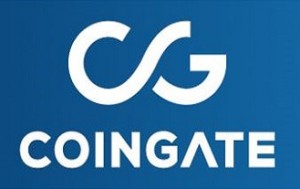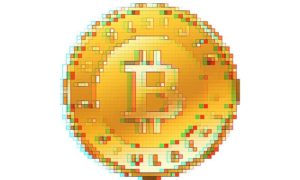CoinGate Email Interview

CoinGate is a bitcoin payment service for businesses as well as a site that sells bitcoin for fiat. It is based out of Lithuania and complies with local and EU regulation. Its system aims to integrate bitcoin payments as viable option for all kinds of merchants, showing them the benefits of bitcoin transactions. We caught up with CoinGate’s team to ask them a few questions about their business, its intersection with the banking industry and the regulatory environment in Lithuania and Europe.
CoinGate: The Origins
Bitcoin Chaser: What was the inspiration behind CoinGate and why did you launch it?
CoinGate: I first heard of Bitcoin back in 2011, when my friend, an IT security specialist and cryptography enthusiast introduced me to the basic principles of Blockchain technology. Back then I did not get into the technological peculiarities of it, but, in the standards of today, bought a rather substantial number of bitcoins, based solely on the enthusiastic recomendation of my friend. It was one of those rare cases when I played a lottery, but eventually it brought an unbelievably positive outcome. 2013 was the year of gathering profits and also the year when Blockchain became my passion: studying what it is, and what benefits it brings to the world as an eye-opening experience.
Today Bitcoin adoption is relatively low since it has become largely a trading asset; however, in the long run I see it solving at least a couple of major problems in the FinTech world – cross-border and online payments. That is essentially what our company CoinGate does – we are a Bitcoin and, since recently, Altcoin payments company, enabling businesses and merchants accept payments from a global customer base, risk-free. We decided to become part of the Bitcoin and Blockchain revolution after realizing that Bitcoin brought something extraordinary with its seemingly effortless way of bypassing any unnecessary intermediaries when making peer-to-peer payments. The potential of bringing the control of money back to the people really excited us, and we decided to delve deeper into the technology ourselves.
The Business Environment in which CoinGate Operates
BC: How fast is your exchange business expanding?
CG: It is not expanding as fast as we would want it to, and I believe this is partially influenced by the lack of regulatory clarifications on cryptocurrency trading in Lithuania. As of now we can only offer a limited crypto-exchange functionality to customers (i.e. we cannot hold fiat balances). However, we are constantly working on both regulatory/licensing issues, and on how to improve the user experience with the business model that we are permitted to operate.
For credit card processing, we have partnered with an Israeli-based company Simplex through an affiliation partnership, and we see a stable growth in credit card purchases. SEPA transfers remain our native method of receiving and settling payments. Through another partnership with a mobile billing company DaoPay, we are also introducing an option for customers to buy bitcoins using Mobile balance without any kind of verification in 10 European countries starting May 15th, and we will eventually have coverage for over 35 countries globally with this payment method. Although the feature is targeted to small payments from €5 up to €100, we see great potential for it, since no one has yet succeeded to actually make something like it happen on a large scale. We believe that this convenient method will eventually attract more customers to try out bitcoins and to start using CoinGate.com.
Bitcoin Payment Services
BC: How fast is your bitcoin payment service expanding?
CG: We started building the CoinGate platform from scratch in 2014. There were very little resources at the time on the technology, so it was really a „come on let’s make it happen“ product. Today we have the knowledge, a rapidly expanding customer base and already what we think is a reputable brand name. Actually, the trust we have gained so far within the crypto ecosystem is the biggest achievement for myself and my team.
Up until today CoinGate has processed over 20,000 orders, and more than 13,000 of these were processed just in the last three months. We will continue to focus on the further development of various methods, tools and features in order to provide a wider variety of solutions for any specific customer need – there are big plans on our roadmap. At the same time, we are doing our best to keep the platform as convenient and understandable as possible.
Relationship Between Both Sides of the Business
BC: Are there any correlations between the growth on one side and the growth on the other side? If so, why do you think that is?
CG: We get a rapidly increasing number of clients who need SaaS solutions for collecting Bitcoin payments, as well as an increasing number of customers who are looking to buy Bitcoin, both for spending and for investment. In my opinion, there is a very reasonable explanation flow for this. One, Bitcoin is steadily getting more popular, and people are increasingly putting their confidence into it as an asset, leading to increasing Bitcoin price and much less volatility. Two, new and existing crypto-currency holders are seeking ways to spend their assets, whereas businesses and merchants see a new payment option as advantageous for adoption. Three, the demand and the supply begin to chase one another, gradually involving other individuals and businesses in the cryptocurrency ecosystem.
Transaction Problems and CoinGate’s Business
BC: Do you see the block size and bitcoin transaction debates affecting your business at all?
CG: The increasing fees and unspent/pruned transactions require additional efforts from us to monitor incoming Bitcoin payments for our merchants. In addition, the Bitcoin network keeps getting more complex with new layer technologies, such as Replace-by-Fee, implemented. Merchants can actually lose money if, without the actual know-how, they decide to process such transactions on their own, rather than trusting a Bitcoin processor.
Nonetheless, as the demand for businesses to accept Bitcoin payments grows, CoinGate steps in by bringing a degree of reliability and convenience to businesses for handling orders paid with Bitcoin. Consequently, we do not see any kind of retrace in the growth of our customer base, and I believe the primary reason for this is the functionality of our platform. The variety of solutions we have implemented on CoinGate really simplify the life of our merchants, and we receiving nothing else but great feedback.
The Geography of CoinGate’s Business
BC: Do you see demand for your services coming from places in which there are a lot of capital controls and demonetization threats?
CG: We have not observed a clear tendency to this date with CoinGate customers.
BC: Which are the top 5 countries for CoinGate by trading volume?
CG: For our exchange service for buying and selling Bitcoin, the customers usually are from Europe due to the simplicity of buying bitcoins by bank transfer, or selling them to us for a bank payout. Our biggest trading volumes come from Lithuania, Latvia, Poland, France and the UK.
On the other hand, most Bitcoin purchases made with credit or debit cards come from the U.S., the UK, Australia, France, and Germany. As for the Merchant product, we have clients from the UK, the Netherlands, Spain, India, Germany, UAE, Russia, among others.
Regulation and CoinGate
BC: How do you see the regulatory environment for your business in Lithuania and Europe?
CG: At this moment Bitcoin is largely unregulated in Europe and Lithuania, at least compared to the level of regulation in the U.S. Furthermore, Lithuania does not impose any additional procedures for activity related to cryptocurrency trading. However, as it is relatively a compact market, being pioneers in this business came with a degree of pressure from banks, press and various state entities back in the years 2013-14. I am glad to see that attitudes are changing and my home country is finally realizing the potential behind decentralized ecosystems and the Blockchain.
EU and Non-EU Countries
BC: Is there a significant difference between EU and non-EU countries or do you see EU and non-EU countries going down a similar regulatory path when it comes to bitcoin?
CG: Now the regulatory situation is much better than it was 3 years ago. If you recall, there were tons of articles on various countries banning Bitcoins, and plenty of negative feedback towards the technology. You will not see that much of these nowadays, unless it is China or Russia where decentralized systems collide with the state’s conjuncture. Bitcoins are convenient, they do have a use case and 350k+ daily transactions confirm this.
The technology can be ignored, but its adoption is inevitable. My only hope is that once clerks get a proper understanding of Blockchain they will handle integration of it in the same manner as the European Union handles it: through an open dialogue and a willingness to listen. Today, Bitcoin and Altcoins are a $50 billion economy, which, at its current pace, should at least triple in the next 3 years. Eventually, a mechanism will be necessary to handle all AML and other risks coming with the expansion of the market.
CoinGate and the Challenge of Regulation
BC: Which are the most challenging regulatory measures that you face?
CG: We want to give our customers an opportunity to trade bitcoins to fiat and vice-versa without leaving our platform. To do this, we would need a license for storing customer balances in fiat currencies, yet this collides with Lithuania’s central bank recommendation for licensed businesses to avoid Bitcoin-related activity at all costs. I must admit that the regulatory environment is currently undergoing changes, hopefully for the better, and we are keeping a close eye on it.
The Future of Bitcoin
BC: What do you think will happen with bitcoin in 2 or 3 years?
CG: It is very difficult to foresee Bitcoin’s path in the upcoming years. The scaling problem remains a technical imperfection of Bitcoin design fundamentals. We are still in the same spot as we were 3 years ago, but we now have another problem of unconfirmed and pruned transactions. Confirming transactions quickly became much more expensive than it was 3 years ago. There persists a slight risk of the network split, which, in my humble opinion, should be avoided at all costs, even though I believe it would not become disastrous to the cryptocurrency ecosystem in the long run.
I cannot really see a way how the Bitcoin ship could sink, but the scaling problem is a crucial one. While we do not yet have a solution for it, Bitcoin will nonetheless remain an asset for speculation and investment. This scenario is a perfect recipe for another price bubble and may lead us to a price of $5,000-$8,000 per BTC, and transaction costs of 5-10$ per input after the next miner reward halving. That would be a success for investors, but a loss in terms of potential for innovation. I am a big supporter of SegWit and I hope we will somehow find a way adopt it in the next 2 years. It would be a great opportunity and proof to the world that Bitcoin can – and should – be bigger than it is now, and not just in its monetary worth, but also in its value as a method for making global payments.
Can CoinGate Convince People to By Bitcoin?
BC: For all those who are still on the fence, what would you tell them to convince them to join the world of bitcoin and buy a few coins?
CG: Bitcoin, Ethereum, Ripple, Smart Contracts and Public Ledgers still sound like terms from the science fiction movies to some people, even though they already comprise a $50+ billion market. Nonetheless, I could not be more confident that in the next 4-5 years the aforementioned terms will eventually become ordinary slang in the world of IT and Fintech. The technology is extremely interesting and capable of making huge changes in the world, for most of which we are probably not ready yet. So I would urge anyone to jump into it and become an early adopter, even though it may seem it is already too late.
Pitching Bitcoin to Merchants
BC: For those who sell products and services online but haven’t adopted bitcoin payments yet, how do you convince them to enable bitcoin payments?
CG: There are all the widely-known benefits of Bitcoin: enable your customers to make purchases from anywhere in the world, never risking a chargeback, for a fee that is just a fraction of what credit card companies charge. But honestly, I do not see any reason why a business should NOT accept Bitcoin as a method of payment. Of course, Bitcoin payments will not double the revenue of your business (at least not immediately), but even if the increase is a mere 1%, is it still not worth it?
Accepting Bitcoin payments also brings the potential for getting traction in the press, not to mention the chance to make your business stand out from the competition and appear innovative and forward-thinking. Finally, if you decide to keep the Bitcoins earned from your sales, you are essentially making a rather decent investment, looking at the historic data. Had a business kept its sales income from December 2016 (exactly 6 months ago), the value of it would have more than doubled by now.







